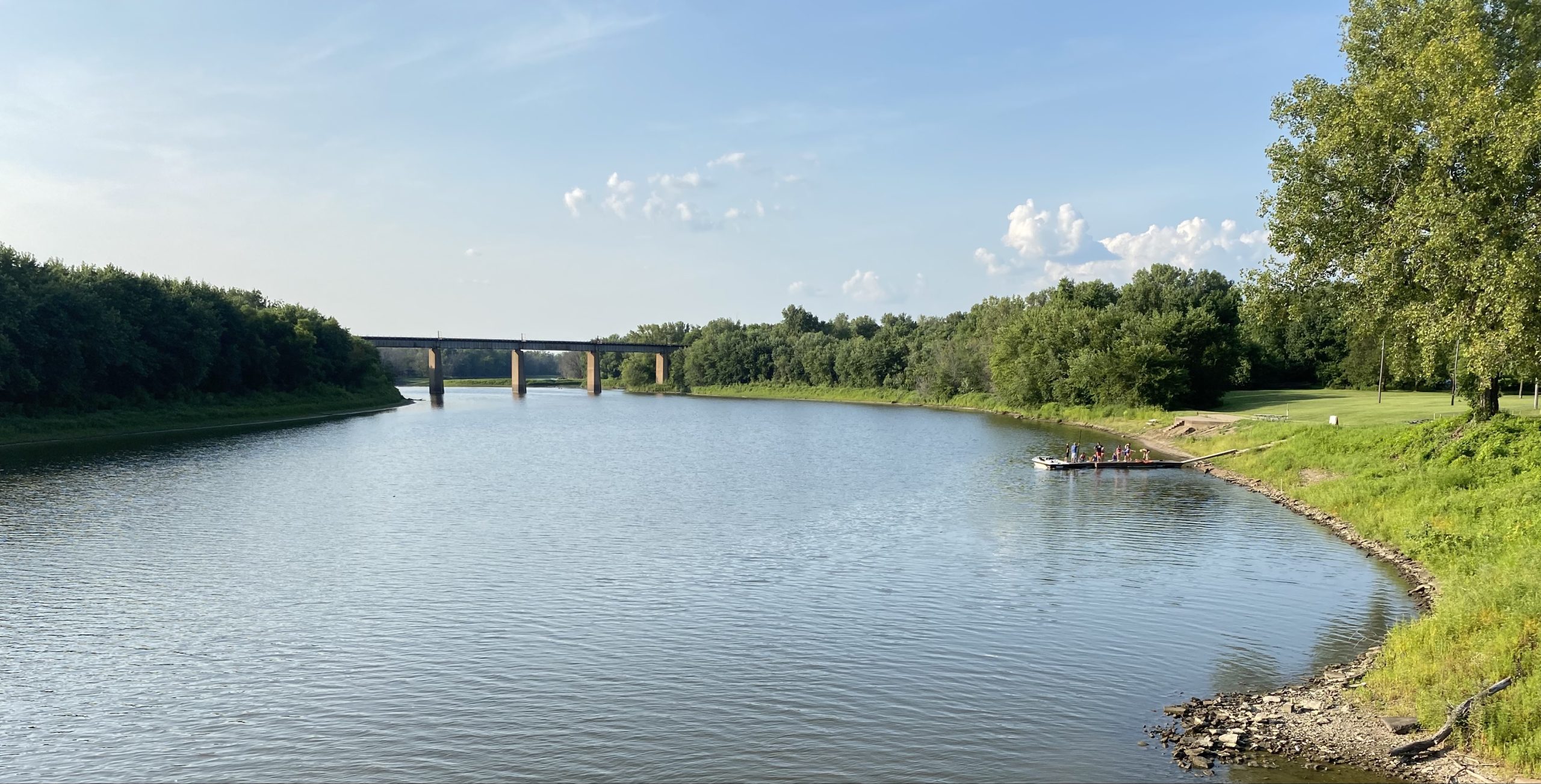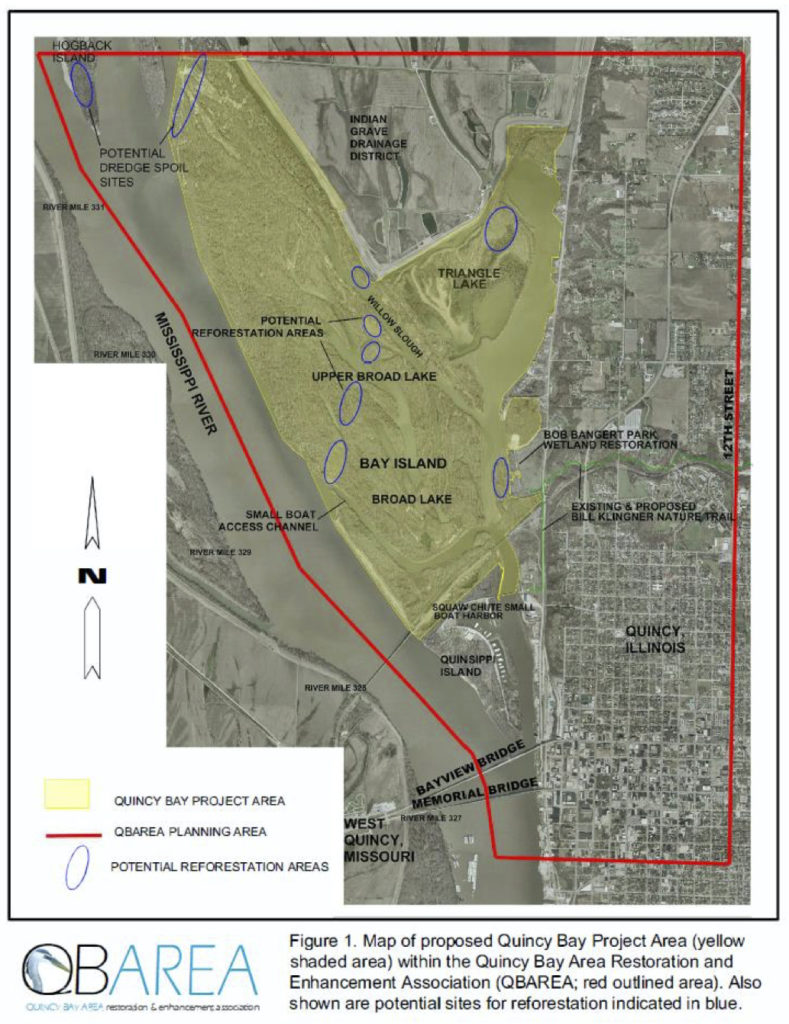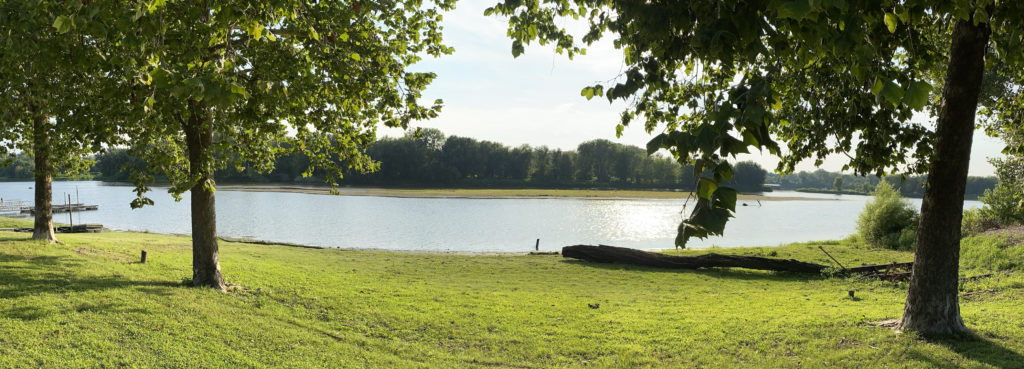‘This is a game-changer’: Restoration of Quincy Bay gets $33 million from Senate Appropriations Committee

QUINCY — The U.S. Senate Appropriations Committee has given tentative approval to allocating $33 million to fully fund projects in the Upper Mississippi River Restoration program, including the restoration of Quincy Bay.
A joint press release from U.S. Sens. Dick Durbin and Tammy Duckworth of Illinois on Tuesday announced that the Senate Appropriations Committee advanced three Fiscal Year 2022 appropriations bills for Energy and Water, Agriculture, Rural Development and the Food and Drug Administration (FDA), and Military Construction and Veterans Affairs.
Durbin, the Senate majority whip, sits on the Appropriations Committee.
Current water depths on Quincy Bay have reached one to three feet, with a more than 70 percent loss in water volume during the past 80 years.
If Congress passes the spending bills and President Joe Biden signs them, Quincy Bay will be dredged to 10-foot depths. A rock dam will be built to prevent further erosion from river traffic. Topological improvements, such as island elevation and wildlife habitat restoration for fish and waterfowl, would be made.
“It’s going to save the bay. This is a game-changer,” said Rome Frericks, executive director of the Quincy Park District and co-chairman of the Quincy Bay Area Restoration and Enhancement Association (QBAREA).

QBAREA was formed to address the loss of water depth and the reduction of open water habitat area for fishing, hunting and boating. It represents the city of Quincy, Park District, Quincy Boat Club, Great River Economic Development Foundation, Quincy Area Convention and Visitors Bureau, and the Mississippi Valley Hunter and Fisherman Association.
The project area, as proposed by QBAREA, starts at the bridge to Quinsippi Island and goes north to Triangle Lake. Along with dredging, QBAREA called for building a dike and weir structure at the Bay Island access channel, as well as creating above-flood elevation islands on Bay Island and northeast of Triangle Lake for reforestation and wildlife habitat restoration.
Frericks said the importance of the project was illustrated when the U.S. Army Corps of Engineers dropped the level of the Mississippi River to 10 feet, 9 inches on Tuesday. He said plans call for the river to drop to 10 feet, 1 inch by the end of the week.
“I don’t know why (the Corps) is doing that. When they drop (the river) into these historical lows, boating is jeopardized on a weekend,” Frericks said. “At Kesler Park right now, that island has probably gotten twice the normal size over the last week because of the reduction of the water levels. It’s the size of a football field.
“If we go to 10 feet, 1 inch, that by far is the lowest (river level) I’ve seen.”

The QBAREA website estimated the project would cost up to $20 million. Possibly 100 percent construction funding could come from the Corps of Engineers.
Asked why the appropriations bill provided $33 million for the project, QBAREA Secretary Mike Klingner wrote in a text, “Any project that is this size, especially river projects, has contingency funds to allow flexibility in final scope. Hopefully, we can remove more sediments than in the original concept scope, providing deeper water and improved habitat.”
QBAREA representatives will meet Aug. 19 with the Corps of Engineers to discuss the scope of the project.
“We’re still four to five years out on this,” Frericks said. “Seeing it on paper is kind of a sign of relief for us. We know everything we’ve been working hard on for the last 18 months or so is coming to fruition now.”
The bills also provided $50 million in grants to make renovations and updates to existing state veterans homes and build new facilities. Veterans homes in Illinois have needed assistance in building new homes to meet demand in the Chicago area, as well as in making significant facilities’ improvements to mitigate and prevent COVID-19 and Legionnaires’ outbreaks.
The press release did not indicate which veterans homes would receive funding. The state has veterans homes in Quincy, Anna, Manteno, LaSalle and Chicago. Quincy received $230 million as part of the Rebuild Illinois capital bill that was signed into law in June 2019 to build a state-of-the-art skilled facility and a domiciliary to accommodate up to 340 beds at its 12th and Locust campus.
The bills also give $115,000 to Illini Community Hospital in Pittsfield to expand its rural telemedicine program, covering a town of 4,200 people and a service area of 12,000 people.
Another $45.1 million has been set aside for the Army Corps to fund the first Navigation and Ecosystem Sustainability Program (NESP) construction on Lock and Dam 25 at Winfield, Mo., and fund environmental restoration projects.
NESP is a long-term program of navigation improvements and ecological restoration for the Upper Mississippi River System that will be implemented incrementally during a 50-year period. It also calls for expansion and modernization seven locks at the most congested locations along the Upper Mississippi and Illinois rivers, as well as fund $1.7 billion in ecosystem restoration.
However, Lock and Dam 21 at Quincy is not part of these projects, according to a representative from Durbin’s office.
“These bills makes critical investments in Illinois and support President Biden’s agenda to build back better. I’m glad the Senate Appropriations Committee was able to come together on a bipartisan basis to advance these bills, which will benefit families, communities, and the economy in Illinois,” Durbin said in the release.
“In order to build back better in Illinois, we must make significant investments from the federal level,” Duckworth said in the release. “I’m glad that our working families across the state will benefit from these bipartisan bills, and I’ll keep working and using every tool available to help bring much needed funding for our communities and all Illinoisans.”
Miss Clipping Out Stories to Save for Later?
Click the Purchase Story button below to order a print of this story. We will print it for you on matte photo paper to keep forever.

